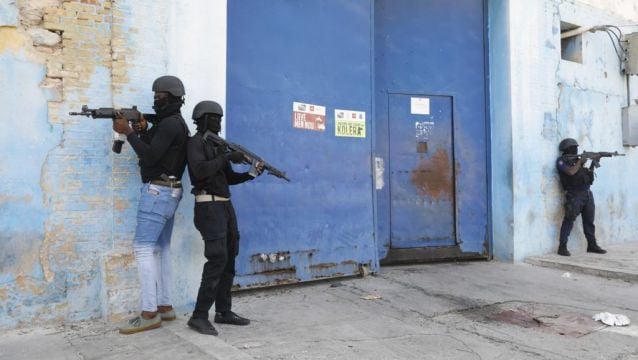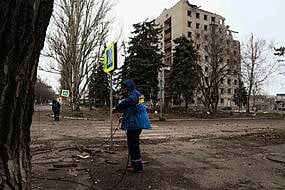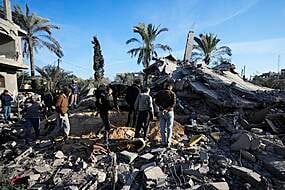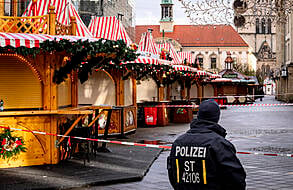Gangs attacked two neighbourhoods in Haiti’s capital early on Monday in a rampage that left at least a dozen people dead in surrounding areas.
Gunmen looted homes in the communities of Laboule and Thomassin before sunrise, forcing residents to flee as some called radio stations pleading for police.
The neighbourhoods had remained largely peaceful despite a surge in violent gang attacks across Port-au-Prince that began on February 29.
An Associated Press photographer saw the bodies of at least 12 men on the streets of Petionville, located just below the mountainous communities of Laboule and Thomassin.
“We woke up this morning to find bodies in the street in our community of Petionville,” said Douce Titi, who works at the mayor’s office. “Ours is not that kind of community. We will start working to remove those bodies before the children start walking by to go to school and the vendors start to arrive.”
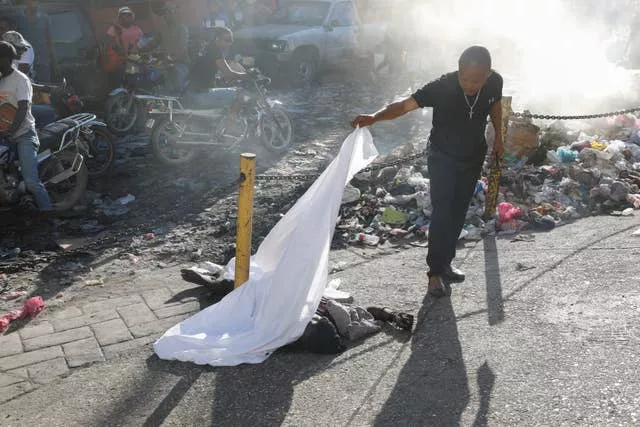
The most recent attacks raised concerns that gang violence would not cease despite Prime Minister Ariel Henry announcing nearly a week ago that he would resign once a transitional presidential council is created, a move that gangs had been demanding.
Gangs have long opposed Mr Henry, saying he was never elected by the people as they blame him for deepening poverty, but critics of gangs accuse them of trying to seize power for themselves or for unidentified Haitian politicians.
Also on Monday, Haiti’s power company announced that four substations in the capital and elsewhere “were destroyed and rendered completely dysfunctional”. As a result, swathes of Port-au-Prince were without power, including the Cite Soleil slum, the Croix-des-Bouquets community and a hospital.
The company said criminals also seized important documents, cables, inverters, batteries and other items.
As gang violence continues unabated, Caribbean leaders have been helping with the creation of a transitional council. It was originally supposed to have seven members with voting powers. But one political party in Haiti rejected the seat they were offered, and another is still squabbling over who should be nominated.
Meanwhile, the deployment of a UN-backed Kenyan police force to fight gangs in Haiti has been delayed, with the East African country saying it would wait until the transitional council is established.
In a bid to curb the relentless violence, Haiti’s government announced on Sunday that it was extending a nighttime curfew through to March 20.
